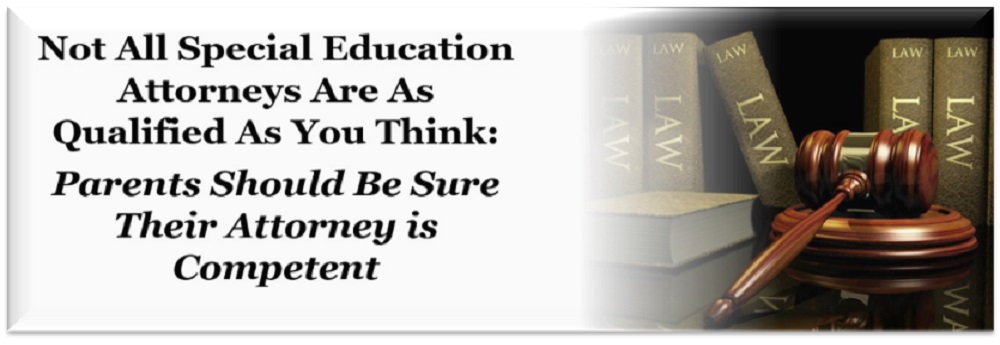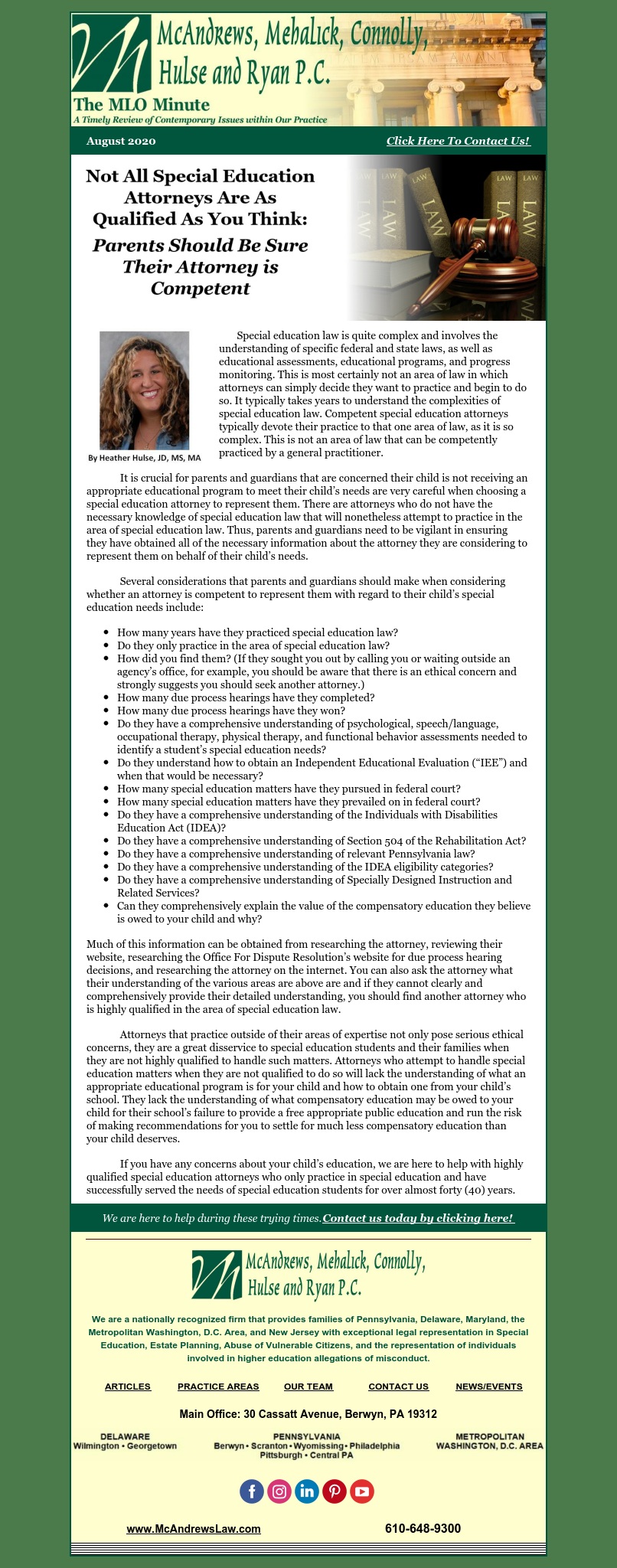August 2020
The MLO Minute: By, Heather Hulse, J.D., M.S., M.A.
Partner and Lead Special Education Attorney in our Scranton Office
Special education law is quite complex and involves the understanding of specific federal and state laws, as well as educational assessments, educational programs, and progress monitoring. This is most certainly not an area of law in which attorneys can simply decide they want to practice and begin to do so. It typically takes years to understand the complexities of special education law. Competent special education attorneys typically devote their practice to that one area of law, as it is so complex. This is not an area of law that can be competently practiced by a general practitioner.
It is crucial for parents and guardians that are concerned their child is not receiving an appropriate educational program to meet their child’s needs are very careful when choosing a special education attorney to represent them. There are attorneys who do not have the necessary knowledge of special education law that will nonetheless attempt to practice in the area of special education law. Thus, parents and guardians need to be vigilant in ensuring they have obtained all of the necessary information about the attorney they are considering to represent them on behalf of their child’s needs.
Several considerations that parents and guardians should make when considering whether an attorney is competent to represent them with regard to their child’s special education needs include:
- How many years have they practiced special education law?
- Do they only practice in the area of special education law?
- How did you find them? (If they sought you out by calling you or waiting outside an agency’s office, for example, you should be aware that there is an ethical concern and strongly suggests you should seek another attorney.)
- How many due process hearings have they completed?
- How many due process hearings have they won?
- Do they have a comprehensive understanding of psychological, speech/language, occupational therapy, physical therapy, and functional behavior assessments needed to identify a student’s special education needs?
- Do they understand how to obtain an Independent Educational Evaluation (“IEE”) and when that would be necessary?
- How many special education matters have they pursued in federal court?
- How many special education matters have they prevailed on in federal court?
- Do they have a comprehensive understanding of the Individuals with Disabilities Education Act (IDEA)?
- Do they have a comprehensive understanding of Section 504 of the Rehabilitation Act?
- Do they have a comprehensive understanding of relevant Pennsylvania law?
- Do they have a comprehensive understanding of the IDEA eligibility categories?
- Do they have a comprehensive understanding of Specially Designed Instruction and Related Services?
- Can they comprehensively explain the value of the compensatory education they believe is owed to your child and why?
Much of this information can be obtained from researching the attorney, reviewing their website, researching the Office For Dispute Resolution’s website for due process hearing decisions, and researching the attorney on the internet. You can also ask the attorney what their understanding of the various areas are above are and if they cannot clearly and comprehensively provide their detailed understanding, you should find another attorney who is highly qualified in the area of special education law.
Attorneys that practice outside of their areas of expertise not only pose serious ethical concerns, they are a great disservice to special education students and their families when they are not highly qualified to handle such matters. Attorneys who attempt to handle special education matters when they are not qualified to do so will lack the understanding of what an appropriate educational program is for your child and how to obtain one from your child’s school. They lack the understanding of what compensatory education may be owed to your child for their school’s failure to provide a free appropriate public education and run the risk of making recommendations for you to settle for much less compensatory education than your child deserves.
If you have any concerns about your child’s education, we are here to help with highly qualified special education attorneys who only practice in special education and have successfully served the needs of special education students for over almost forty (40) years.





